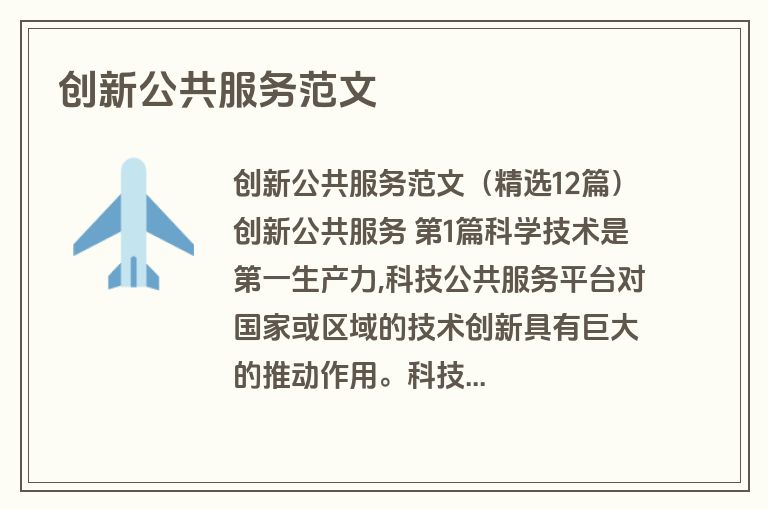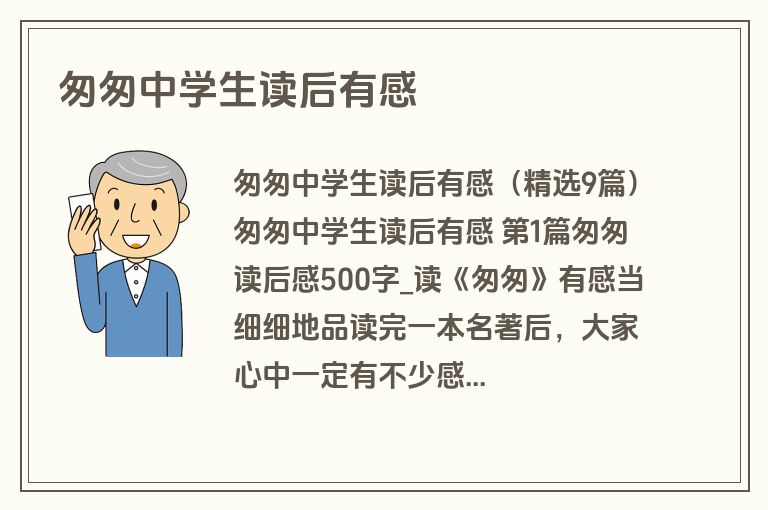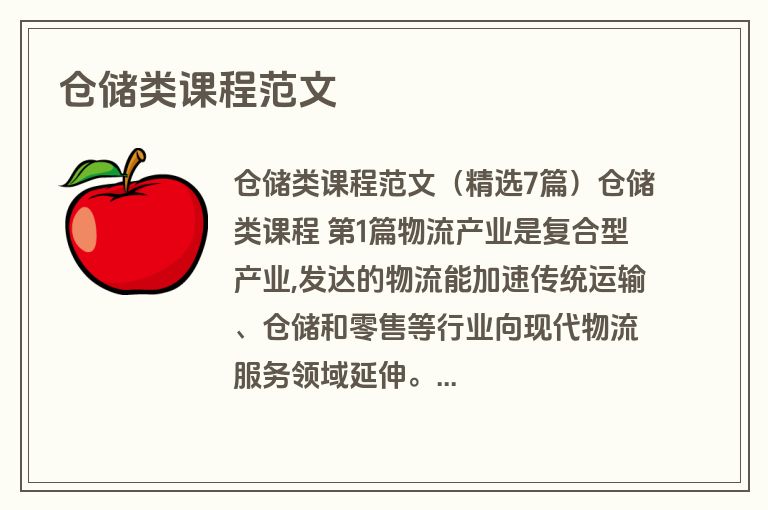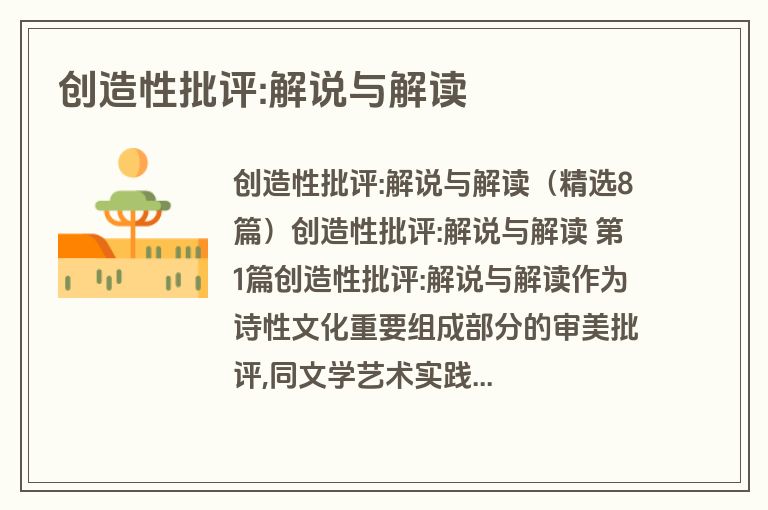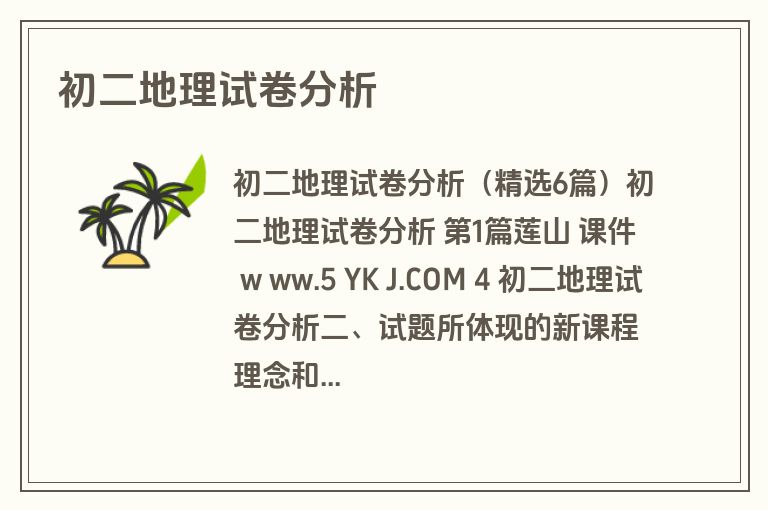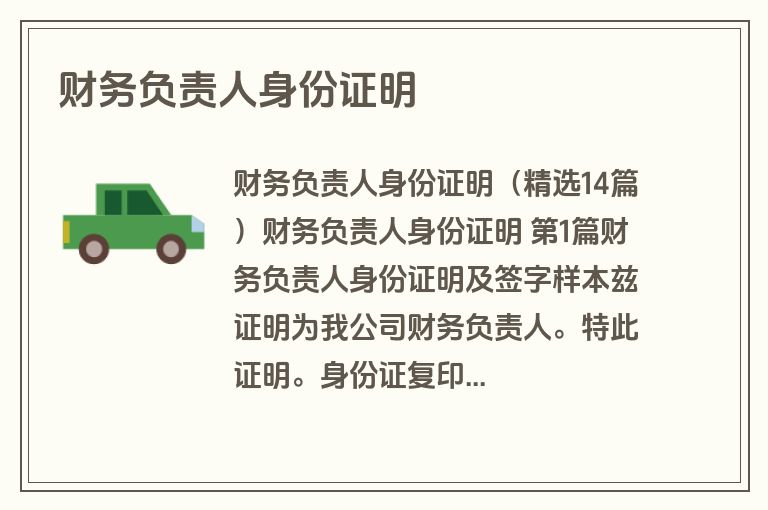八年级英语上册词组总复习(精选6篇)
八年级英语上册词组总复习 第1篇
初二英语上册词组总复习
我们在期末复习阶段,要把握住本册书中所出现的重点词组。以下简单总结供同学们复习参考。
A
ago
a moment ago刚才
例如:
Where were you a moment ago?
six years ago六年前
long ago很久以前
all
all day and all night 没日没夜,整日整夜
all the world 全世界
all the year(round)一年到头
例如:
I hear it is cold all the year round.all right(表示同意的感叹词)好,行,可以;满意的;安然无恙的all the same 仍然,还是
例如:
Thank you all the same.不论怎样还是要谢谢你(尽管你没帮上忙)。
all the time 一直;始终;总是
例如:
The memory robot followed Mr.Mott all the time.another
in another ten days 再过十天
another person 另一个人
I want another two apples.(我想再要两个苹果)
ask
ask the way 问路
ask(sb.)a question 问(某人)一个问题
ask for 请求;询问
例如:
He is asking a policewoman for help.ask sb.to do sth.要求(请求)某人做某事
ask sb.for sth 向某人要某物
at
at home 在家
用心 爱心 专心
at school 在学校
at work 在工作
at the seaside 在海边
at the station 在车站
at the library 在图书馆
at the cinema 在电影院
at breakfast/lunch/supper/dinner 早餐/午餐/晚餐/正餐
例如:
I read the morning paper at breakfast.at six o’clock 六点时
at midnight 午夜时
at noon 中午时
at Christmas 圣诞节时
at once 立刻
at times 有时;偶尔
例如:
It will be cloudy at times.not...at all 一点都不
at the end of 在……结尾;到……尽头
例如:
At the end of the concert,Eric sang a song in Chinese.at the start of,at the beginning of 在……开始的时候
at the same time 同时
例如:
I can see the world at the same time.at this time of year 每年的这个时候
at this time of day 在每天的这个时候
例如:
Many stores sell mooncakes at this time of year.B
back
go back 回到,返回
come back 回来,归来
be back 回到
by
by the river 河边
go by train 乘火车去
by oneself 独自地
by the way 顺便说;顺便问一下
例如:
By the way,why did you call me?
be free 有空
例如:
Are you free tomorrow evening?
C
come
come down 下来
come in 进入
come on 继续到来;来吧
come over 过来;顺便拜访
例如:
Would you like to come over to my home for Mid-autumn Festival?
come out(花)开;发芽;出现;出来
例如:
Trees turn green,and flowers start to come out.例如:
The radio says the sun will come out later.catch
catch a bus 乘公共汽车
D
diary
keep a diary 记日记
例如:
I keep a diary to help remember things.during
during the daytime 白天时
during the night 夜晚时
E
end
in the end 最后,最终
at the end of 在……结束的时候
enjoy oneself过得快活
exam
pass an exam 考试及格
fail(in)an exam 考试不及格
an exam paper 考卷
F
fall down倒下;跌倒;从……落下
例如:
He fell down and broke his leg.fall asleep 入睡
fall ill 生病
far from 离……远
festival
the Spring Festival 春节
finish
finish school 毕业
finish reading 读完
finish one’s homework 完成某人的作业
例如:
Let’s finish our homework.field trip 野外旅游
例如:
We are going on our first field trip.fly
fly away 飞走
fly to 飞向,乘飞机去
fly a kite 放风筝
front
in front of 在……前面(外部)
例如:
Six students stand in a row in front of the class.in the front of 在……前面(内部)
at the front of 在……前面(内部)
fun
have fun 开心,作乐
We’re going to have fun learning and speaking English this term.full name 全名
G
gate
at the school gate 在学校大门
get
get married 结婚
例如:
He met my mother in Liverpool,and they got married in 1967.get together 相聚
例如:
Families get together.get a cold 患感冒
get back 回来,取回
get down 下车;下降,落下;下梯子
get on 上(车)
get out 离开
get to到达
get up 起床
give
give back 归还
give a hand 给予帮助
give up 放弃
give a concert 开音乐会
例如:
They are going to give a concert in Kunming tonight.given name名字
例如:
I have two given names.give a talk 做演讲
例如:
Mr.Wu wants me to give a talk in class tomorrow.go
go boating/swimming/hiking/fishing/skating/skiing/shopping去划船/游泳/徒步旅行/钓鱼/滑冰/滑雪/购物
Why don’t we go fishing at East Lake?
例如:
I like going fishing.例如:
Let’s go boating on the river.go away 离开
go back 回来
go down 沿着
go along 沿着
go for(a walk)去(散步)
go in 进入
go into 进入
go on 继续
例如:
They didn’t want to stop the concert,so they went on.go out 外出;到外面
例如:
I often go out and visit people.go over 复习
go to 到,去
例如:
We went to a town near the sea.grow up 长大;成长
例如:
Do you want to be a businessman when you grow up?
八年级英语上册词组总复习 第2篇
(三)词组归纳
a :a little(一点)a lot(很,非常), a lot of(许多), lots of(许多,很多),a bottle of(一盒……), a piece of(一张/片……), a cup of(一杯……), a glass of(一玻璃杯……),all right(好,行,不错), most of(大部分……), plenty of(很多,大量的)
be: be good for(对于……来说是好的), be bad for(对于……来说是不好的), be going to(将要做……), be good at(在……方面出色), be late for(……迟到), between…and …(在……两者之间),both…and…(两着都……).come: come from(来自……), Come in(进来).Come on 过来呀!快来呀)!Come with me(跟我来)!different from(与……不同), of course(当然)
Do: do one’s homework(做家庭作业),do housework(做家务), do some reading(读书), on duty9(值日),do morning exercises(做早操).get: get down(下来), get up(起床),get on with(在……方面进展), get home(到家), get to school(到校)
go: go boating(去划船), go swimming(去游泳), go running(去跑步), go walking(去散步), go shopping(去购物), go skating(去滑冰), go skiing(去滑雪), go fishing(去钓鱼), go sightseeing(去游览,去观光), go climbing(去爬山),go home(回家), go to school(去上学), go to work(去上班), go straight/down/on/along(一直走), go along(沿着……一直走)
have: have breakfast(吃早餐), have lunch(吃午饭), have supper(吃晚饭), have dinner(吃正餐), have a class(上课), have a look(看一看), have got(有), have a good appetite(有好胃口,食欲强), have a picnic(野餐)
how: how many(多少), how much{多少(用于不可数名词)}, how old(几岁), how often(多久一次)
look: look at(看……), look like(看起来象),very much(很,非常), in English(用英语)
put: put into(把……放到……), put on(穿上……),put …away…(把……放好/收起来),take: take(good)care of(好好爱护,关心,照顾,保管), take photos(照相), take a bath(洗澡), take exercise(进行锻炼,进行练习).动词短语 :
fly a kite(放风筝), ride a bike(骑自行车), play a game(做游戏), throw …away(把……扔掉), turn on(开……), stand up(站起来), sing a song(唱歌), ask a question(问问题), run away(流走,跑走), look forward to(盼望), try to(尝试做…….), be angry with(对……生气), divided by(除以……), come to(合计), collect coins(收集硬币), climb up to the mountain/hill…(爬到山上)by the way(顺便问问),time短语:
in the morning(在早上), in the afternoon(在下午), in the evening(在晚上), Good morning/ afternoon/evening/night(早上/下午/晚上好/晚安).for hours(持续……小时),for an hour(持续一个小时), At this time of day(每天的这个时候),five minutes past nine(九点零五分), quarter past nine(九点十五分), quarter to nine(差十五分到九点), all day(整天),on
Sunday/Monday/Tuesday/Wednesday/Thursday/Friday/Saturday(在星期天/星期一/星期二/星期三/星期四/星期五/星期六), Mid-autumn Festival(中秋节), Spring Festival(春节), National Day(国庆节), Children’s Day(儿童节), New Year(新年), Women’s Day(妇女节), May Day(劳动节), Teachers’ Day(教师节), Party’s Birthday(党生日)noun短语:
family tree(家族谱), favourite food/ drinks/colour/subject(喜爱的食物)paint brush(画笔), an office worker(一个办公室文员), class teacher(班主任), an old…(一个/件老的/旧的……), years old(…..岁), the high jump(跳高), the long jump(跳远), a map of China/the UK…(一张中国/英国……地图), e-mail address(电子邮箱地址), telephone number(电话号码)
交通手段:
on foot(走路), by bus/car/ship/plane/underground/bike(乘公共汽车/小轿车/轮船/飞机/地铁/自车)
介词短语:
at the beginning of(在……的开始), at the end of(在…..的结尾/结束),at the weekend(在周末),on the weekdays(在工作日), in front of(在…..的前面), in the front of(在……物品内的前面), in the middle of(在……的中间), next to(在……旁边), at the gate of(在……的大门), on the floor(在地板上), on the …()floor(在第几层楼), on the ground floor(在一楼), at home(在家), at school(在学校), over
there(那里,那边), in the sun(在阳光下),from…to…(从……到……), turn right/left(向右/左转), on the left(在左边), on the right(在右边), to the
east/west/north/south of(在…….的东/西/北/南方), from the left/right(从左/右), kilometers/metres away(离……千米/米远), in Class One(在一班), in Grade Six(在六年级)
句子:
Please say hello to…for me(宾格)/人名{请代(我)向……问好}.Here it is(是).Here they are().Here you are(给你).Nice to meet you(很高兴见到你)!Nothing much(没什么).Not at all(没关系).Shall we…?{(用于建议)我们……好吗?} I’ll take it(我买了).It’s time to …(是做……的时候了)It’s time for….(是……的时候了)
Excuse me(对不起,打扰了).See you(再见)!welcome to …(欢迎到……), You’re welcome(别客气).What about…?(……呢?)How do you do?{你好吗?(用于初次见面,答句相同)How do you like…?(你觉得……怎么样?)
It doesn’t matter.(没关系)That’s a pity.(真糟糕)Never mind!(不要紧)And you?(你呢?)Happy birthday!(生日快乐)
地方建筑:
post office(邮局), police station(警察局), train station(火车站), sports
人教版七年级(上)英语总复习 第3篇
人教版七年级英语上册一共包含了十二个单元,其中前三个单元为预备单元,在中考中本册书主要涉及考点包含以下几个方面。
1. 形容词性物主代词和名词性物主代词的简单用法。形容词性物主代词具有形容词的特点,常做定于,修饰名词,位于名词之前;名词性物主代词相当于“形容词性物主代词 + 名词”,可单独使用,后面不必再接名词。
2. 掌握指示代词this, these, that, those和人称代词I, he, she等的用法。This指代较近的一个人或物,these是this的复数形式,指代较近的几个人或物;而that常用来指代较远的一个人或物,those是that的复数形式,指代较远的几个人或物。
3. 掌握可数名词和不可数名词。可数名词的变化规则:(1)一般情况下词尾加 -s。如:book—books(2)以s,x,ch,sh结尾的词加 -es。如:bus—buses,watch—watches;(3)以o结尾的词加 -s或 -es。如:photo—photos, tomato—tomatoes.(4)以辅音字母加y结尾的词,变y为i再加 -es。如:family—families。(5)以f或fe结尾的词,把f或fe变为v,再加 -es。如:leaf—leaves, knife—knives。(6)不规则变化。如:child—children。不可数名词无法用数目计算,无复数形式;做主语时,谓语动词要用单数形式。
4. 掌握Yes/No Questions and short answers.
5. 掌握并运用特殊疑问句Where is/are…? 及其答语:It’s/They’re…和方位介词in, on, under谈论物品所在的位置。Where is/are…? 意为“…在哪里?”,常用于询问人或物的位置。表达人或物所在位置时,通常要借助介词。on意为“在…上”,强调物体在表面上;in意为“在…里面”;under意为“在…下面”。
6. 掌握do和does引导的一般疑问句及其肯定和否定回答,以及实义动词三单变化形式。(1)一般情况,直接在词尾加 -s。如:play—plays;(2) 以s,x,ch,sh, 或o结尾的词要在词尾加 -es。如:go—goes, watch—watches (3) 以“辅音字母 +y”结尾的词要变y为i,再加 -es。如:study—studies;(4) 特殊变化,如 :have—has。
7. 掌握由What, When, How old, How much…引导的特殊疑问句,注意其中主谓一致的原则。
8. 名词所有格的构成。名词所有格是指在某一名词后的右上角写上“’”再加上 -s等,表示“…的”这一结构形式。其构成规则为:(1)一般单数名词,或不以“s”或“es”结尾的复数名词,在单词后写“’s”构成。(2)如果是以“s”或“es”结尾的复数名词构成所有格时,在后面写上“’”即可。(3)表示各自所有时,每个名词都要变成所有格;表示共同所有时,只将最后一个名词变成所有格。
9. 掌握一些 有用的短 语和句型:first name, last name, phone number, watch…on TV, think about, play basketball, after school…
二、典型例题
1. My friend______ a Chinese map.
A. has B. have C. is
解析 : friend是单数形式, 根据句意“我朋友有一张中国地图”,故谓语动词用has.
答案:A
2.Tom likes basketball, _____ he doesn’t like volleyball.
A. so B. and C. but
解析 : so”因此”, 表因果关系;and”和;又”, 表顺承关系;but”但是”,表转折关系。由句意“汤姆喜欢篮球,但是他不喜欢排球”可知前后两个分句之间是转折关系。
答案:C
3. I am hungry. I want to have some______.
A. bread B. hamburger C. noodle
解析 :bread( 面包 ) 是不可数名词,noodle( 面条 ) 是可数名词,hamburger( 汉堡包 ) 是可数名词,some修饰不可数名词或可数名词复数形式。
答案:A
4.-__________ ?
- My birthday is December 12th.
A. When is his birthday? B. When is her birthday?
C. When is your birthday?
解析 : 根据答语“我的生日是12月12日”可知问句是询问什么时候生日,根据答语中形容词性物主代词my可推测问句中的形容词性物主代词为your。
答案:C
5. -_________do you like English?
- Because I think it’s very interesting.
A. Why B. When C. Who
解析 : why“为什么”;when“什么时候”;who“谁”。由答语“因为我认为它很有趣”知问句问的是“原因”,故应用why来引导特殊疑问句。
答案:A
七年级英语期末练习题
一、单项选择填空 ( 共 15 小题,每小题 1 分,计 15 分 )
( ) 1. Harry Potter is _____ interesting story and we all like it.
A. a B. an C. the
( ) 2. -_____ is the jacket?
-It’s blue.
A. What B. How C. What color
( ) 3. - Hello! My name is Gina.
-______.
A. Hello! I’m Han Mei. B. Fine, thanks.
C. Good morning!
( ) 4. He is John Smith. John is his _____ name.
A. first B. last C. middle
( ) 5. It’s not ____ baseball. It’s ____ baseball.
A. you;he B. his;her C. your;him
( ) 6. - Is Kate your sister?
- No, ____.
A. she is B. Kate is C. she isn’t
( ) 7. _____ my friends.
A. This is B. He’s C. These are
( ) 8. Linda likes tomatoes, ____ she doesn’t like potatoes.
A. and B. but C. then
( ) 9. - ____ is my bag?
- It’s on the sofa.
A. Where B. How C. What
( ) 10. She wants ____ her new model plane to school.
A. take B. to take C. takes
( ) 11. Let’s ____ TV now.
A. see B. watch C. to watch
( ) 12. They ____ like French fries.
A. don’t B. aren’t C. doesn’t
( ) 13. - ____ do you like P.E.?
-Because it’s relaxing.
A. When B. Why C. How
( ) 14. Sonia has ____ vegetables every day.
A. lot of B. a lot C. lots of
( ) 15. - ____ is the skirt?
- $ 45.
A. How B. How much C. When
二、完形填空 ( 共 10 小题,每小题 1.5 分,计 15 分 )
( ) 16. A. to B. of C. for
( ) 17. A. sound B. sounds C. likes
( ) 18. A. because B. so C. and
( ) 19. A. at B. about C. with
( ) 20. A. four B. three C. two
( ) 21. A. best B. favorite C. like
( ) 22. A. good B. well C. fine
( ) 23. A. isn’t B. don’t C. do
( ) 24. A. for B. to C. with
( ) 25. A. tell B. say C. speak
三、口语交际 ( 共 5 小题,每小题 2 分,计 10 分 )
B: Yes, a hamburger, please.
B: Oh, yes. I’m thirsty now.
B: Oh, no. I want a glass of vegetable juice. Er… tomato juice, please.
B: I think it’s wrong. It can’t be $ 2.7! It’s $ 2.17.
26. ____ 27. ____ 28. _____ 29._____ 30. _____
A. How about some fruit juice?
B. Can I help you?
C. Here you are. That’s $2.70.
D. Here you are. That’s $2.17.
E. Anything to drink?
F. What else to eat?
G. Oh, you are right. I can’t do math.
四、阅读理解 ( 共 20 小题,每小题 2 分,计 40 分 )
A
Dale is from zunyi. He is nine years old and his birthday is onNovember 30th. He likes eating apples and bananas. He likes blue verymuch. He has lots of blue clothes at home.
Dale’s family is big. Five people are in his family. They are hisparents, his brother, his sister and Dale. Dale’s brother is Nick. He is sixyears old. His birthday is on May 15th. His sister is Rose. She is only threeyears old. Her birthday is on February 7th. Dale’s father is thirty-six yearsold and Dale’s mother is thirty-four years old. They are teachers. Dale hasa good friend in Guiyang. His name is Mike.
( ) 31. Dale likes eating ______.
A. pears and carrots B. bananas and apples
C. pears and bananas
( ) 32. Mike is Dale’s ______.
A. cousin B. brother C. friend
( ) 33. Rose’s birthday is on ______.
A. February 7th B. November 30th C. May 15th
( ) 34. _______ is 34 years old.
A. Dale B. Dale’s mother C. Dale’s father
( ) 35. Which is right?
A. Dale likes black very much. B. Dale’s parents are teachers.
C. Dale is ten years old.
B
( ) 36. Who are 12 years old?
A. Sally and Bob B. Sally and Jane C. John and Jane
( ) 37. What’s Bob’s favorite sport?
A. Ping-pong B. Basketball C. Soccer
( ) 38. When is Jane’s birthday?
A. On November 1st B. On January 22nd C. On October 5th
( ) 39. What’s John’s favorite food?
A. Chicken B. Rice C. Hamburgers
( ) 40. From the table, we know ___
A. Sally’s birthday is on January 22nd.
B. Bob likes eating rice. C. Jane can play tennis.
C
One morning Mr. and Mrs. Green get up early. After breakfast, they goshopping at 7:30. They get to the shop at 7:50. In the shop they see a lot of clothes. Mrs. Green likes them. So she buys a shirt for their son, a skirt for their daughter, and a sweater for Mr. Green. She buys a dress for herself, too.
Mr. Green is very tired. He looks at his watch. Then he says,” Oh, it’s12 o’lock. I think we must go home now. It’s late.” So they go out of theshop and begin to go home, but they lose their way.
Mr. Green goes along the street. He can’t find the way. He asks an oldman, “Excuse me, sir. Where am I?”
The old man looks at him and their car. “You are in your car, sir,” hesays.
( ) 41. Mr. and Mrs. Green get to the shop at _____.
A. ten past seven B. seven fifteen C. ten to eight
( ) 42. They buy some _____ in the shop.
A. food B. drink C. clothes
( ) 43. They buy their son _____.
A. a sweater B. a shirt C. a skirt
( ) 44. “Lose their way” means _____.
A. 迷路B. 问路C. 按原路
( ) 45. Does the old man help them?
A. Yes, he does. B. No, he doesn’t. C. He doesn’t know.
D
Tom, Jim and Sam are good friends. They go to school together andplay together.
At school, Tom likes math best. Jim’s favorite subject is Chinese. Samlikes P. E.,They often help each other with theirstudies.
After school, they play sports. They all like soccer very much. They play it for more than one hour every day. They like to watch soccer games,too.
Saturday and Sunday are their favorite days. Sometimes they playsoccer all day on weekends.
46. What’s Sam’s favorite subject?
____________________________________
47. Who can help Jim with his math?
____________________________________
48. Does Tom like soccer?
____________________________________
49. 将划线句子 (1) 翻译成英语。
____________________________________
50. 将划线句子 (2) 翻译成汉语。
____________________________________
五、词汇部分 ( 共 5 小题,每小题 1 分,计 5 分 )
51. Tom and Jack ______ (be) good friends.
52. Today is Lily’s ______(twelve) birthday.
53. David ______(not do) his homework at school.
54. His father ______(go) to work every day.
55. This is my pen and that is ______(Linda) pen.
六、语篇阅读 ( 共 10 小题,每题 1 分,计 10 分 )
56. _______ 57. _______ 58. _______ 59. ________ 60. _______ 61. _______ 62. _______
63. _______ 64. _______ 65. _______
七、句子改错 ( 共 5 小题,每小题 1 分,计 5 分 )
八、书面表达 ( 共 1 小题,每小题 20 分,计 20 分 )
假如你是Nacy, 下面是你的个人信息,请根据这些信息,写一篇60词左右的英语短文。
_________________________________________________________________________________________
附:七年级英语期末练习题参考答案
一、单项选择题 ( 共15小题,每题1分,计15分 )
1—5 BCAAB 6—10 CCBAB 11—15 BABCB
二、完型填空 ( 共10小题,每题1.5分,计15分 )
15—20 CBCCA 21—25 BABAC
三、口语交际 ( 共5小题,每题2分,计10分 )
26—30 BEACG
四、阅读理解 ( 共20小题,每题2分,计40分 )
31—35 BCABB 36—40 BCCAC 41—45 CCBAB
46. P.E./His favorite subject is P.E.
47. Tom./Tom can help Jim with his math.
48. Yes, he does.
49. P.E. is interesting for him.
50. 他们经常在电视上看足球比赛。
五、词汇部分 ( 共5小题,每题1分,计5分 )
51. are 52. twelfth 53. doesn’t do 54. goes 55. Linda’s
六、语篇阅读 ( 共10小题,每题1分,计10分 )
56. photos 57. at 58. family 59. big 60. don’t 61. are 62. works
63. but 64. near 65. Its
七、句子改错 ( 共5小题,每题1分,计5分 )
66. B—but 67. B—for 68. C—去掉the 69. B—Tom’s 70. B—is
八、书面表达 ( 共1小题,每小题20分,计20分 )
八年级英语上册词组总复习 第4篇
1. —How often do you watch TV? 你多久看一次电视?
—Twice a week. 一周两次。
【点拨】 how often意为“多久一次”,是表示频度的词组,一般用表示频度的时间副词或短语every day, usually, sometimes, never, once a week, twice a month等来回答。表示“次数”时,“一次”用once,“两次”用twice,“三次”以上用“基数词 + times”来表示。
2. She says its good for my health. 她说对我的身体有好处。
【点拨】 be good for ... 意为“对……有益”。be good at... 意为“擅长……,对……学得好”。例如:
To drink more water every day is good for you. 每天多喝水对你有好处。
3. How many hours do you sleep every night? 你每晚睡多少个小时?
【点拨】 how many意为“多少”,后面要接复数可数名词。例如:
How many books do you have? 你有多少本书?
4. I hardly ever exercise. 我几乎不锻炼。
【点拨】 hardly是一个副词,意为“几乎不”、“几乎没有”,是一个半否定词。hardly ever意为“几乎从不”。例如:
I can hardly believe it. 我几乎不能相信这件事。
5. I look after my health. 我照顾好我的身体健康。
【点拨】 look after是一个短语动词,意为“照顾、照料”,与take care of的意思相同。例如:
She is looking after her brother at home. 她正在家照看弟弟。
6. So maybe Im not healthy, although I have one healthy habit. 虽然我有一个健康的习惯,但有可能我并不健康。
【点拨】 although(=though)意为“虽然、即使”,是一个从属连词,用来引导让步状语从句,但不可与but连用;若句子中用了but,也就不能再用although了。例如:
Although she is in poor health, she works hard. (= She is in poor health, but she works hard.) 尽管她身体不好,但她还是努力工作。
7. Maybe you have too much yin. 也许你阴气过盛。
【点拨】 too much意为“太多”,用来修饰不可数名词。例如:
I have too much housework to do this afternoon. 今天下午我有太多的家务要做。
8. You should go to bed early for a few nights. 你应该早睡几个晚上。
【点拨】 few与a few修饰复数可数名词,little与a little修饰不可数名词;few与little含有否定意义,a few与a little含有肯定意义。
9. I study late every night, sometimes until 2 am. 我每天晚上学习到很晚,有时到凌晨两点。
【点拨】 句中until是一个介词,意为“直到……”,后面接表示时间点的词语。until除了可作介词外,还可用作连词,引导时间状语从句。与not连用时可构成“直到……才……”句型。例如:
I will wait here until you come back. 我将在这儿等到你回来。
I didnt go to bed until 11
oclock last night. 我昨天晚上直到11点才睡觉。
10. Im sorry to hear that youre not feeling well. 很抱歉听说你感觉不好。
【点拨】 当听到对方/别人有病或感觉不好的消息时,一般可用Im sorry to hear that.(或that从句),来安慰对方。例如:
Im sorry to hear that he has died. 听说他去世了,我感到很难过。
11. —How long are you staying? 你要在那儿呆多长时间?
—Just for four days. 只四天。
【点拨】 how long意为“多久”,用来对一段时间进行提问。例如:
How long have you been here? 你在这儿呆多久了?
12. I just finished making my last movie. 我刚拍完我的最后一部电影。
【点拨】 动词finish, enjoy等后面要跟动词-ing形式作宾语,不可接动词不定式。例如:
Have you finished reading the book? 你看完这本书了吗?
13. How far is it from your home to school? 从你家到学校有多远?
【点拨】 how far是一个固定短语,意为“多远”,一般用来对距离进行提问。例如:
How far is it from the park to your school? 公园离你们的学校有多远?
14. In China, it depends on where you are. 在中国,它取决你住在哪儿。
【点拨】 depend是不及物动词,常与介词on连用,组成depend on短语,意为“依靠、视……而定、取决于”,后面可接宾语。例如:
You cant depend on your parents any longer. 你不能再依靠你的父母了。
15. Maybe another time. 也许另一个时间。
【点拨】 another可用作代词或形容词,指三者以上或不确定数量中的任意一个人或物,意为“另一个,再一个”。后面可接单数名词或one。例如:
Would you like another apple? 你还再要一个苹果吗?
the other也有“另一个”的意思,但指两者中的另一个,有特定的数量范围,是特指。例如:
My uncle has two children. One is a son, the other is a daughter. 我叔叔有两个孩子,一个儿子,另一个是女儿。
16. Oh, why not?噢,为什么不呢?
【点拨】 “Why not?”意为“为什么不……?”、“为什么不行呢?”,来反问对方为什么不能去。
17. Taras shorter than Tina. 泰拉比蒂娜矮。
Tom is more athletic than Sam. 汤姆比萨姆的体格强健。
【点拨】 单音节形容词的比较级是在词尾加-er构成,多音节形容词的比较级是在前面加more构成;very, quite等只可用来修饰原级,much, far, a little等可用来修饰比较级。例如:
I am a little taller than you. 我比你高一点。
This bike is more expensive than yours. 这辆自行车比你的贵。
巩固练习
()1. —________ do you send e-mail to your cousin?
—Sometimes. (2008广东省)
A. How long B. How much
C. How oftenD. How soon
()2. How many ________ do you want every week? (2008四川泸州)
A. milk B. waterC. apples
()3. —Linda, pass my glasses to me, please. I can_______ read the words in the newspaper.
—With pleasure.(2008青海省)
A. hardly B. nearly C. clearly
()4. Amy, Ill be on holiday for a week. Could you help me _______ my dog? (2008河南省)
A. look for B. look at
C. look afterD. look over
()5. _______ they arrived early at the airport,they nearly missed their flight. (2008天津市)
A. IfB. Because
C. As soon asD. Although
()6. I think real cards are _______ than e-cards.(2008北京市)
A. nice B. nicerC. nicestD. the nicest
()7. —Youve stayed in this school for several days, havent you?
—Yes. I think Ill be here for _______ more days. (2008湖北襄樊)
A. fewB. a fewC. littleD. a little
()8. —Hurry up. The bus is coming.
—Wait a minute. Dont cross the street_________ the traffic lights are green.(2008安徽省)
A. after B. untilC. while D. since
()9. —I have a bad cold. I feel terrible. (2008四川泸州)
—_________.
A. All right B. Sorry to hear thatC. OK
()10. —________ have you learned to play the guitar?
—For three years. (2008吉林长春)
A. How longB. How often
C. How soonD. How much
()11. —Linda, when shall we take a walk?
—After I finish ________ the dishes.(2008北京市)
A. wash B. washed
C. to washD. washing
()12. —_______ is it from Haikou to Sanya?
—Its about 300 kilometres. (2008海南省)
A. How farB. How long C. How many
()13. You should guess its meaning when you meet a new word, dont _______ your dictionary all the time. (2008广西来宾)
A. keep onB. work on
C. look on D. depend on
()14. We had a picnic last term and it was a lot of fun, so lets have _________ one this month.(2007江苏苏州)
A. the other B. someC. anotherD. other
()15. —What about traveling during the summer holidays?
—_________ It can relax us and open our eyes.
(2007广东佛山)
A. Why not? B. What for?C. I think so.
16. 根据汉语意思完成英语句子。每空限填一词。
不要吃太多的垃圾食品,对身体不好。
Please dont eat _________ _________ junk food.
八年级上册英语词组总结 第5篇
2. look after = take care of 照顾
3. surf the internet 上网
4. healthy lifestyle 健康的生活方式
5. go skate boarding 去划板
6. keep healthy=stay healthy 保持健康
7. eating habits 饮食习惯
8. take more exercise 做更多的运动
9. the same as 与什么相同
10. be different from 不同
11. once a month一月一次
12. twice a week一周两次
13.make a difference to 对......有影响/作用
14. most of the students=most students
15. shop=go shopping=do some shopping 购物
16. be good for 对......有益
17. be bad for 对......有害
18. come home from school放学回家
19. of course = certainly = sure 当然
20. get good grades 取得好成绩
21. keep/be in good health 保持健康
八年级英语上册词组总复习 第6篇
1.出生在二月 waswere born in February
2.出生在四月十二号 waswere born on Aprilthe twelfth
3.开始做某事 startbegin doing sthstartbegin to do sth
4.开始作曲 start writing music
5.停止做某事 stop doing sth
6.停下来做某事 stop to do sth
7.在。。。岁时at the age of
8.参加(活动)take part injoin in
9.参加(某人、某个组织)join
10.主修major in
11.由于(某事、某人)because of sthsb
12.在某人的空闲时间 in one’s freespare time
13.看见某人做过某事 see sb do sth
14.看见某人正在做某事see sb doing sth
15.为国家队踢球 play for the national team
16.成为一名滑冰冠军 become an ice skating champion
17.学习开车learn to drive
18.上清华大学go to Tsinghua University
19.哼唱歌曲和很难的曲子hum songs and difficult pieces of music
20.游览美国tour the U.S.21.一位杰出的中国钢琴家an outstanding Chinese pianist
22.一部名为。。。的喜剧a comedy callednamed……
23.第一次拉手风琴first play the accordion
24.他太年轻,不能从事那份工作。He is too young to do the work.He is so young that he can’t do the
work.He isn’t old enough to do the work.25.你任何时候开始做事都不会太早。You are never too young tostart doing things.26.女子单打头号选手the number one women’s singles player
Unit 10
1.长大grow up
2.听起来好像sound like
3.举办艺术展览hold art exhibitions
4.周游世界travel all over around across the world
5.想成为want to be become
6.同时at the same time
7.一位职业运动员a professional athlete
8.上表演课take acting lessons
9.某个有趣的地方somewhere interesting
10.找一份兼职find a part-time job
11.存钱save money
12.制定新年的打算make New Year’s resolutions
13.超过一千overmore than one thousand
14.多锻炼以保持健康exercise more to keep fit
15.以。。。交流communicate with
16.一两天a day or twoone or two days
17.弹奏一种乐器play an instrument
18.学一门外语learn a foreign language
